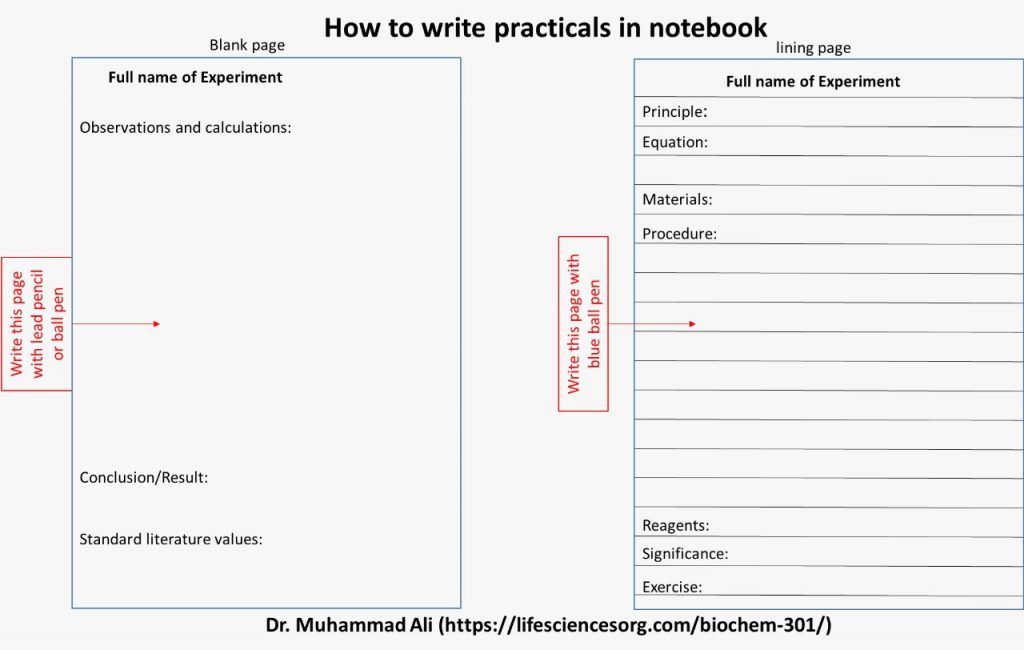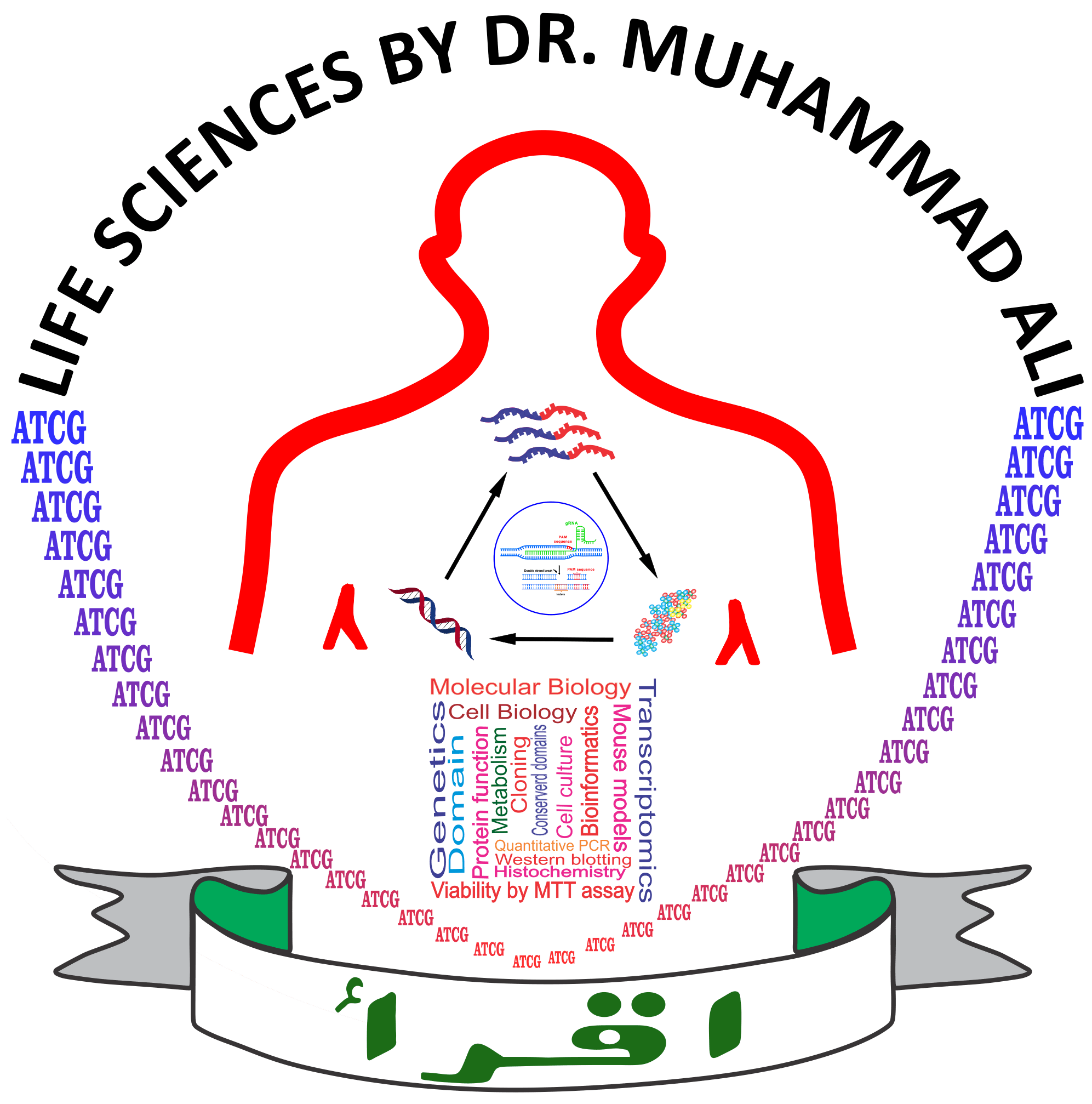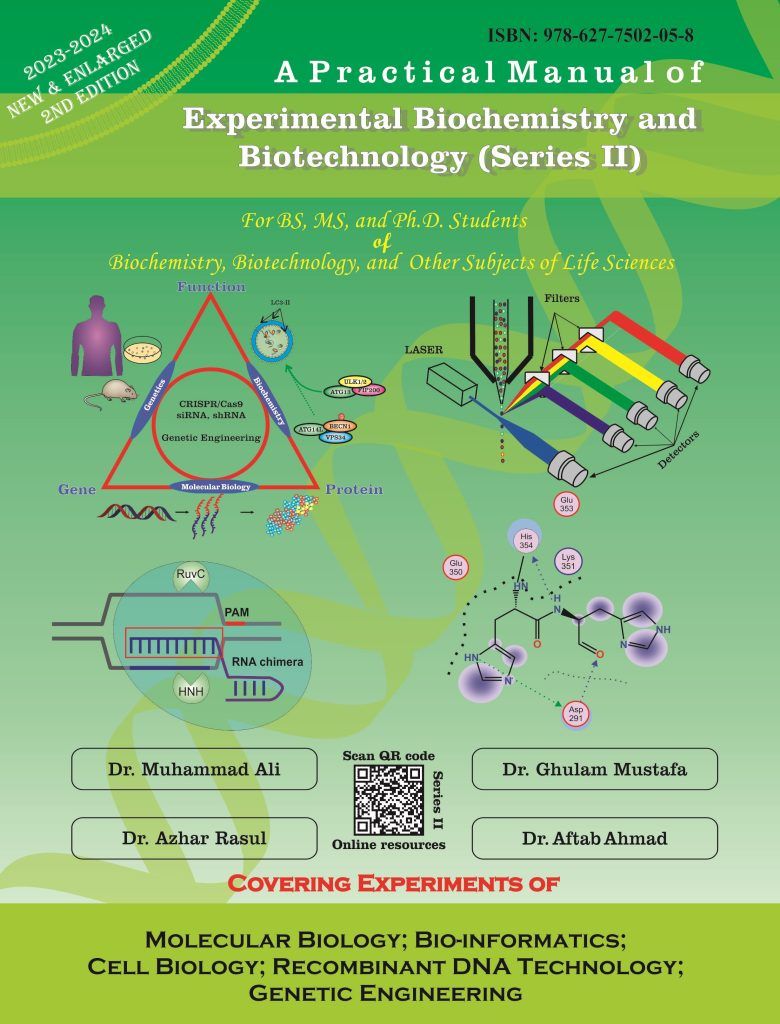Biochem-703 (list of practicals)
- Preparation of solutions for molecular biology; (Series-I: 2.1, 2.3, 2.7, 2.8, 2.9, 2.19, 2.22, I will provide)
- Detection and quantitative determination of DNA; (Series-II: 1.6, 1.10)
- Cloning experiments using colias host; (Series-II: 3.2)
- Isolation and qualitative detection of plasmid DNA (miniprep.); (Series-II: 1.3, 1.10)
- Digestion of DNA with restriction enzymes and separation of different sized fragments on agarose gel; (Series-II: 3.5)
- Study of transformed bacteria on the basis of antibiotic resistance; (Series-II: 3.3)
- DNA amplification by polymerase chain reaction; (Series-II: 1.9, 1.11)
- PCR-RFLP (I will provide).
BIOCHEM-703 RECOMBINANT DNA TECHNOLOGY AND GENE MANIPULATION 3(2-1)
Learning objectives
By the end of this course students will be able to:
- Have basic and recent knowledge about recombinant DNA technology
- Explain genetic engineering and biotechnology
- Perform different techniques of recombinant DNA technology
- Know about basic bioinformatics tools
Theory
Introduction to cloning strategies; Isolation of DNA and RNA from living material; Gene Isolation: Polymerase chain reaction (PCR) and RT-PCR; Introducing recombinant plasmids into suitable host: Tools, enzymes, vectors and hosts; Recombinant selection and characterization; RT-PCR. DNA sequencing; Sanger and Next Generation; Chemical synthesis of Primers and Genes; Probes: synthesis and detection. Cloning in mammalian and plant cells; DNA fingerprinting and its application in forensic sciences. Gene expression: Real-time PCR, reporter genes, fusion proteins, differential-display PCR, microarray, RNA sequencing, in vitro translation; Introduction to proteomics; Antisense RNA technology; CRISPER-CAS technology; Application and uses of genetic engineering in agricultural and biochemical research; Bioinformatics tools for the study of gene structure and function.
Practical
Preparation of solutions for molecular biology; Detection and quantitative determination of DNA; Cloning experiments using E. coli as host; Isolation and qualitative detection of plasmid DNA (miniprep.); Digestion of DNA with restriction enzymes and separation of different sized fragments on agarose gel; Study of transformed bacteria on the basis of antibiotic resistance; DNA amplification by polymerase chain reaction; PCR-RFLP.
Suggested Readings
- Alberts, B., A. Johnson, J. Lewis, D. Morgan, M. Raff, K. Roberts and P. Walter. 2014. Molecular Biology of the Cell. 6th Garland Sciences. Taylor and Francis Group, New York, USA.
- Brown, T. A. 2010. Gene Cloning and DNA Analysis: An Introduction, 6th Wiley-Blackwell, UK.
- Green M. R., and J. Sambrook. 2012. Molecular Cloning: A Laboratory Manual. 4th Cold Spring Harbor Laboratory Press, Cold Spring Harbor, New York, USA.
- Lodish, H., Berk, C. A. Kaiser, M. Krieger andA. Bretscher. 2016. Molecular Cell Biology. 8th Ed. Freeman, W. H. and Company. New York, USA.
- Nelson, D.L and M.M. Cox. 2021. Lehninger Principles of Biochemistry. 8th Worth Publishers, New York, USA
- Weaver, R. F. 2012. Molecular Biology. 5th Ed. McGraw Hill, New York, USA.
Ali, M. et al., Experimental Biochemistry and Biotechnology (Series I), 2019, 2nd edition, ISBN: 978-969-23317-1-5.
Ali, M. et al., Experimental Biochemistry and Biotechnology (Series II), 2019. 1st edition, ISBN: 978-969-23317-2-2.
Ali, M. et al., Experimental Biochemistry and Biotechnology (Series III), 2022, 1st edition, ISBN: 978-969-23317-6-0.
Mid-term syllabus of Biochem-703: Introduction to cloning strategies; Isolation of DNA and RNA from living material; Gene Isolation: Polymerase chain reaction (PCR) and RT-PCR; Introducing recombinant plasmids into suitable host: Tools, enzymes, vectors and hosts; Recombinant selection and characterization; RT-PCR. DNA sequencing; Sanger and Next Generation; Chemical synthesis of Primers and Genes; ;
Biochem-703: Start preparing your presentations and assignments….. Assignment submission is the second week of next month, October 2022. The presentations will also be started after mid-term exam.
NO EXCUSE WILL BE ACCEPTED
__________________________________________________________________________________
Meeting ID: 316 824 288 013
Passcode: WNyjeA
Microsoft teams will be used whenever online classes will be held. You must make your first name as your registration number.
2017-ag-9382 Haidar Iftikhar
2017-ag-10077 Ahmad Faraz
Solutions for molecular biology (taken from series I)
Ali, M. et al., Experimental Biochemistry and Biotechnology (Series I), 2019, 2nd edition, ISBN: 978-969-23317-1-5.
- Experiment 2.1- Prepare 50 mL of 0.2 molar (0.2 m) glucose solution.
- Experiment 2.3- Calculate molarity of concentrated sulfuric acid of 95% purity (ρ =1.84 g/mL).
- Experiment 2.8- What is w/v % of 1 m NaCl solution?_
- Experiment 2.14- How much absolute ethanol will be added to 45 ml of 70% ethanol to make its 80%?_
- Experiment 2.22- Prepare 1 liter of 0.2 m phosphate buffer of 7.3 pH.
- Experiment 2.25- Prepare 40 mL of DNA extraction buffer.



Comments are closed.